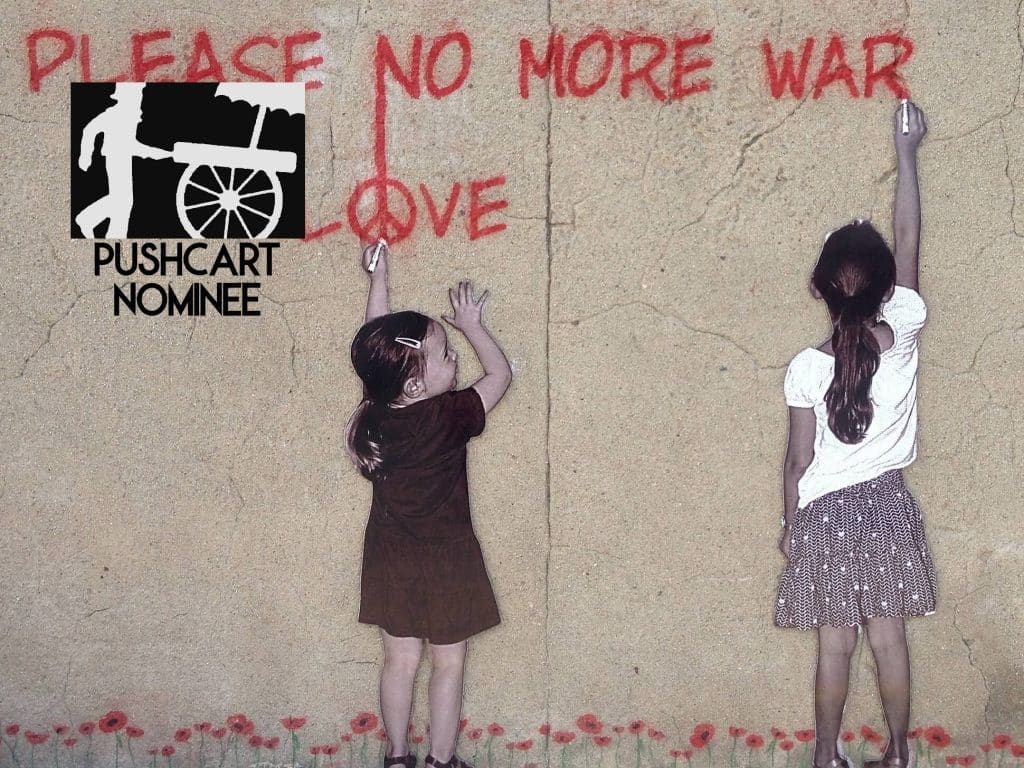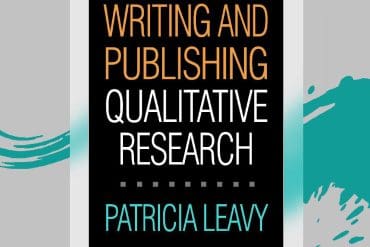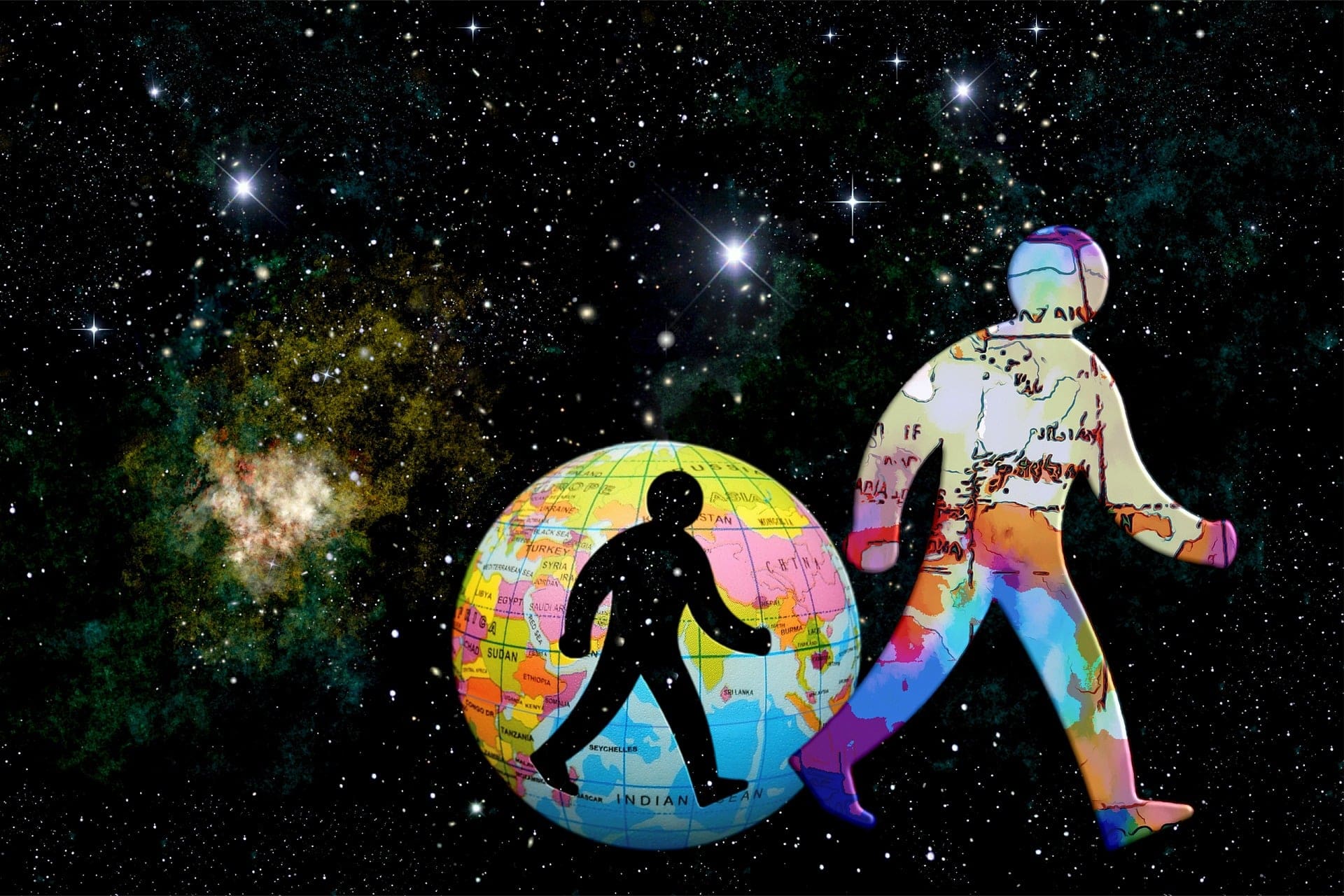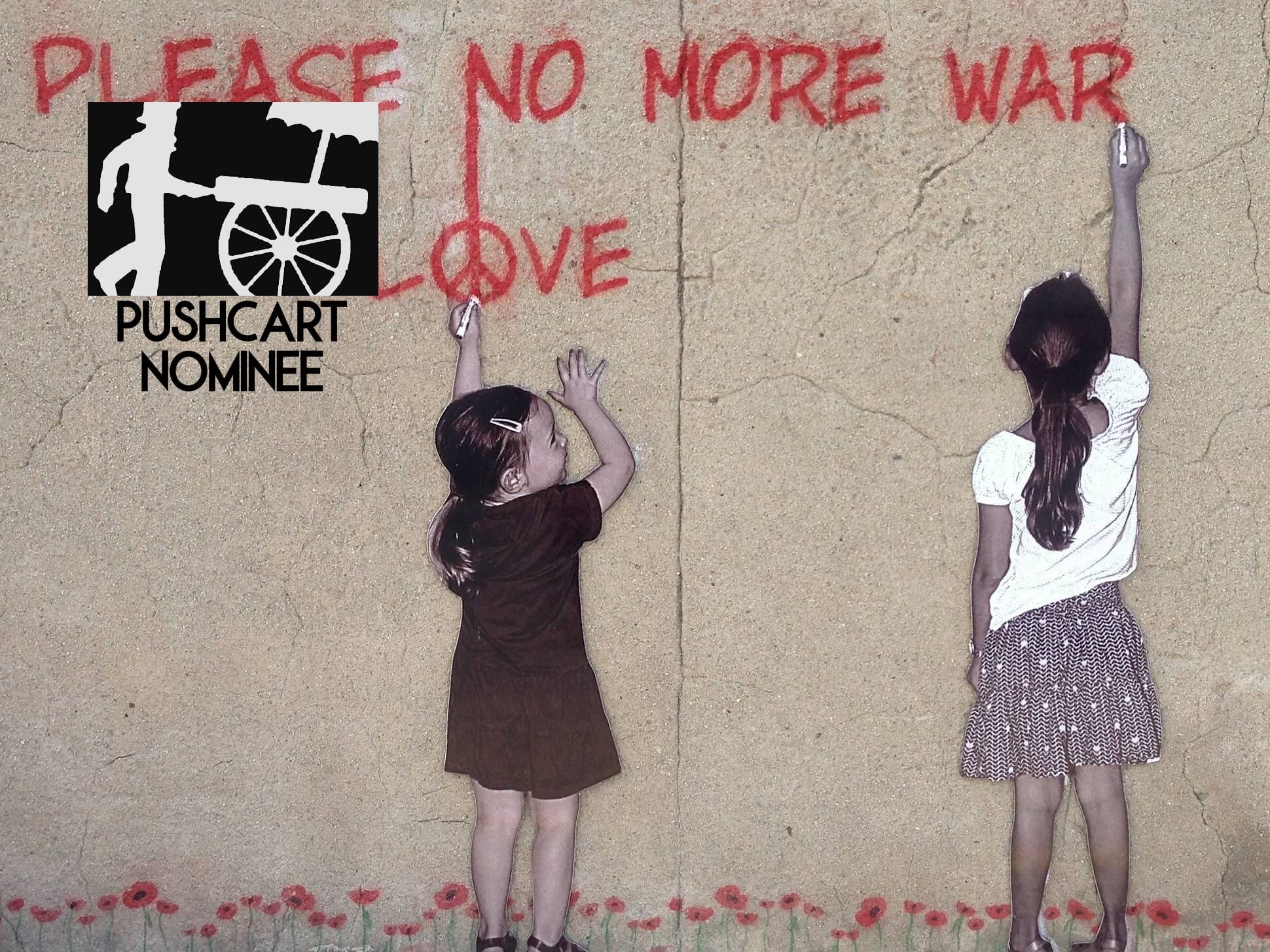Autoethnographic Literary Nonfiction: When Your Student Goes to War
Authors’ Memo

We began this autoethnographic essay thinking about the love the teachers have for their students, and how there is no way to describe it (without sounding creepy). We pulled together a number of artifacts–emails, texts, and Facebook messages–to explore the relationship between a faculty member and a doctoral student. The larger context of this story is that the doctoral student was deployed to active duty in the Navy to a conflict zone, and was conducting her own auto/ethnographic dissertation research at the same time. We hope this piece opens dialog not just about professor/student relationships, but also about the support system for members of the military.
I wish I could describe the love a teacher has for their students. It’s a different kind of love, that seems awkward to even call love (because of all the other meanings of that word).

Jamie is my doctoral student. She is also a Senior Chief in the US Navy Reserves. And she was called up to active duty. To go to war for a year, for a warmongering president. My words, not hers. She is not allowed to comment on that. But the US has been at war for 20 years and operations seem to be ramping up again and I’m convinced that our president wants to push that red button and drop some nuclear bombs.
This is Jamie’s second tour.
Tour. Makes it sound like a vacation.
It is no vacation.
Most of this story is Jamie’s story. It’s not my story. I am one of the ones she leaves behind.
She visits me in my office.
“We had to fill out all sorts of forms. Our wills. I put that you should get all my data.” Her eyes begin to well up. “Will you finish my work if I don’t make it back?”
My throat catches. “Of course.”
Jamie’s dissertation title:
AN AUTO/ETHNOGRAPHIC EXPLORATION OF THE EFFECTS OF A FEMALE RESERVIST’S DEPLOYMENT ON A SERVICE MEMBER’S SUPPORT SYSTEM: THE THEORY OF DEPLOYMENT COMMUNICATION AND RESILIENCE FOR A SUPPORT SYSTEM
I struggle with the friendship/student boundary. She is close to my age. She is someone I would hang out with, be friends with, but she’s also my student. Can we be friends with our students? Can we love them (platonically, of course)?
As she is writing an autoethnography, I tell Jamie to begin journaling about the pre-deployment phase a few months before she is scheduled to leave. She sends me some of the entries to make sure she is doing it “right.” I tell there is no right way to do it, just get everything she can on paper.
I sob as I read the entries. I will not share them; it is not my story to tell. We are both overcome with fear of the unknown, but I am safely outside a warzone, she’s the one going in.
April 8, 2017
Dr. G,
I have been reading, endlessly. I have not been writing. The Journaling right now is crippling. I hope that makes sense. I keep looping Carolyn Ellis’ words from the preface in The Handbook on Autoethnography.
“Autoethnography requires the we observe ourselves observing, that we interrogate what we think and believe, and that we challenge our own assumptions, asking over and over if we penetrated as many layers of our own defenses, fears, and insecurities as our project requires…. “
Damn.
I swear, I think I am a constantly finding the most resistant path to success. Autoethnography is not for the faint at heart, certainly if you are doing it correctly.
I just wanted to communicate with you a bit. I appreciate your presence in my life more than you know. I know what you are thinking, “Jamie, I have only met with you a few times.” Yes, while that is true, you are currently filling the role of female mentor and supporter on stand-by. A woman of high intellect and an open heart. You are a bit of unicorn and I am grateful to have you.
Rambling complete.
Hugs.
Jamie
May 5, 2017
Jamie’s mother has breast cancer. Jamie is leaving soon. My heart breaks for her. I know that she and her mother are close, and the news is devastating.
In her civilian life, Jamie is a high school teacher. A very good one – she has won teacher of the year for her district.
May 16, 2017
Dr. G,
I had the meeting with all my students yesterday. That is a special kind of pain I don’t wish on anyone. When 170+ kids look at you with disbelief, despair, fear and pain…it is hard to process. They have so many questions I cannot really answer. And, the serious weight of the present “teachable moment” is not lost on me.
I have spent so much time thinking about Goffman’s front stage and backstage theory. I feel like, right now, the front stage is SO DRAINING, but yet there is no reprieve.
Tired,
Jamie
She leaves July 2017.
I play Primus’ “Too Many Puppies” on repeat. The song came out in 1990, my first year of college. The first year of war in the Middle East. The first year that people I that knew went to war.
Too many puppies are being shot in the dark
Too many puppies are trained to bark
At the sight of blood that must be spilled so that we may maintain
Our oil fields
Too many puppies with guns in their hands
Too many puppies in foreign lands
I think about another song, by The Cure. You’ve probably heard it, I don’t need to repeat it. I am angry. Angry that this is how the leaders address conflict. By killing. I am angry at the racism, the imperialism, the colonization. I am angry that my friend is caught up in it, a fly trapped in a web of steel.
Wait, my friend? My student.
Jamie sends out regular “friends and family” email updates, and they are for the most part superficial. There is so much she cannot tell us. She sounds so upbeat. I know it’s bullshit.
October 1, 2017
Jessica (because that is how you ended your email),
I have to work really hard to write those emails home. You know I shelter the audience from the truth.
THIS SHIT FUCKING SUCKS. You’re welcome, I know you can handle the truth.
I wish I was able to study the people at the place, that publication would be incredible. I have not been writing since I got here, but I need to. I was really an emotional mess the first week or so. After I got my teeth in the job a bit and saw some small success, I am doing better.
I need hugs. For real. I am so interested in many things here. I just have to be really careful how I write.
UGH.
Jamie
Dear Jamie,
I wondered how much you were nice-ing it up for the family.
Xo
Jessica
Wait. Can I put xo? And faculty at my university don’t go by their first names with students. Have I crossed a line? I don’t know.
I am hypersensitive to the news about events in the area where I think Jamie is. I am hypersensitive to the erratic moves of a warmongering president.
Jamie Covey
You’re friends on Facebook
Works at United States Navy Reserve
You are now connected on Messenger
February 27, 2018
Jessica: Thinking of you. Hope you are ok.
Jamie: Loving and missing you.
I think about sending her a care package, with a tube of lavender lip gloss and a book. I don’t know how much stuff she is allowed to have. I think about war movies, where all a solder’s belongings are kept in a footlocker. I never send it. I feel a lot of guilt about that. I don’t email her as often as I should. It’s too hard. Bad things are happening in my own life and I don’t want her to know about them. Plus, who the hell am I to be sharing my problems? I’m her professor; it isn’t appropriate. Yet she shares so much with me. The inequity feels unethical. I am an asshole.
April 14, 2018
Jessica: The US and allies bombed Syria. Are you ok (physically, mentally). Are you in a safe place?
Jamie: I am okay. This is hard.
She sends photos. In one, she wears fatigues. A helmet with a chin strap. A rifle over her shoulder.
July 2017.
Jamie is home. She is physically fine. She is mentally fucked up. I want to help her, but I don’t know how. I wonder if she had to kill anyone, but I know better than to ask. I take her to breakfast and she tells me stories that are not my stories to tell. Stories that break my heart. I hold as much in as I can and break down when I get home. She doesn’t need to comfort me. It takes a long time before she begins working on her dissertation again. I give her all the time she needs, checking in on her on occasion. I know it is too hard, it is bringing up too much for her. More than once I offer for her to change her topic, but she is committed.
September, 2018
I have unexpected, major surgery that will require at least 8 weeks recovery time.
September 25, 2018
Subject: Re: Dissertation
Dearest Dr. G,
I have nothing. Nothing to share.
I have truly struggled getting back in the groove. I have been reflecting so much (maybe too much) on what I am struggling with
I love you so dearly. I hope you really are starting to feel normal and strong again. Surgery sucks.
I think if you give me a due date and a goal… I will do better. I also know you are looking for the proposal. I have not started hacking on it, but I will be happy to attack it. Do you think if I have it to you by mid OCT I would not be a failure??? 🙂
Hugs,
Jamie
On Tue, Sep 25, 2018 at 1:55 PM, Jessica wrote:
Reflection is good. Just remember to get out of your head some too.
First, you are never a bother. Don’t think that — I am here to help you. Second, you are not going to fail. This may take a little longer than you planned, but that is ok. You have a great job and there isn’t a big need to rush this. It’s ok to be disoriented — you have been through a massive change. From the middle of a war to high schoolers. Um, hello? Be gentle with yourself!
While your situation is unique, I want you to also know that ALL academics have similar feelings. If they say they don’t, they are lying. We all have fear of failure. We all have times when we can’t get going on a project for various reasons. I have been beating myself up for not working on stuff right now. So many of my friends are publishing amazing things and I’m lying on the couch with my dogs eating ice cream and watching Hell’s Kitchen (seriously, I just started season 10). I have three projects due in the next few weeks and I can’t seem to do them (although I also berate myself for that).
Have a draft of your proposal by November 1. How’s that for a deadline? We will plan to defend it in January. Who else is on your committee? I can never remember these things. I have 6 students in dissertation right now.
January 4, 2020. Trump is making nuclear threats.
Jessica: Please don’t get deployed.
Jamie: I wish it was so easy. This has been a hard couple of days….
I am not sure my heart can take another round…
Jessica: I mean, I wouldn’t want to, but I could shatter your kneecap. It would hurt, but it would keep you here. Sorry, bad joke. I don’t want you to go.
In the fall of 2019, one of my colleagues kills herself on campus. January 2020, another one of my students, Mady, dies unexpectedly. I am destroyed.
January 16, 2020
Jamie: This message is for the woman I hope to have as a dear friend someday (not my current professor)… Dearest Jessica, I love you. I know your losses have been great. But, know…your impact on others is immeasurable. This message is for my professor… Dr. W, I love you.
Jessica: Thank you . A colleague and I have been having a conversation about love and our graduate students. There’s no language for the way that professors fall in love with their students. I’m not talking about sexual love or romantic love or parental love. It’s something different. I’m grieving terribly for Mady. I worried terribly for you when you were deployed. I care about my students deeply.
Jamie: Yes. Having taught high school for 20 years…you could not be more right. I have thought about this for years. It IS something different. And, I dare say this is an important component for success. If this is a conversation being had, I want to weigh in.
2020 starts off as a bad year and then continues. In early February, I suffer a personal crisis. During this crisis, I decide to get a tattoo. I’m 48 and have never had a tattoo; in fact, I’ve always been against having something so permanent on my body. Getting a tattoo is not something you are supposed to do when you are in crisis, but no one stops me. I don’t know it at the time, but this will be my last outing before a year of covid quarantine.
Jamie has a sleeve of beautiful flowers on one arm. I ask her if she would like to go with me. I’m a little scared. She’s enthusiastic.
February 28, 2020
Jessica: I’m getting my tattoo Sunday at 11:30 am at dark ages if you want to join.
Jamie: Alright! I am in! That is my library time… So it works out. Hahahah
Jessica: “I can’t work on my dissertation because my advisor wants me to go with her to get a tattoo”
Jamie just graduated. I did not get to attend her graduation, did not get to hood her, because of covid. She is no longer my student. Boundaries can shift and flow, and I don’t have to worry about them in relation to my job. I feel a lot of guilt that I did not adequately support her. At the same time, I don’t know that as a faculty member I was supposed to.
I wish I could describe the love a teacher has for their students. It’s a different kind of love, that seems awkward to even call love (because of all the other meanings of that word).
Jamie is my friend now. We have plans to go kayaking. I am looking forward to that. I love her dearly.
Featured image by Annette Jones from Pixabay
















